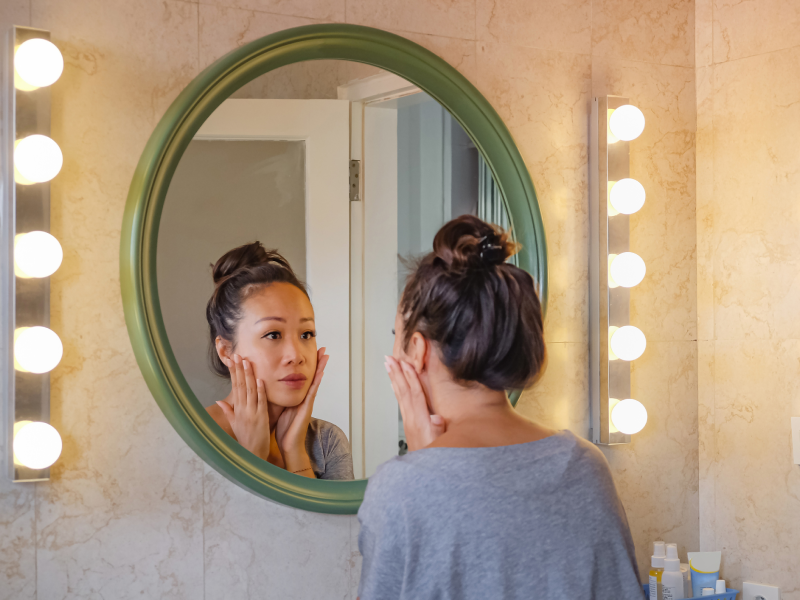
What Are Psychological Reasons for Not Showering?
4 min.
Examine the impact of mental health conditions, trauma, sensory sensitivities, and cultural factors on personal hygiene behaviors.
Personal hygiene plays a crucial role in our overall well-being, contributing not only to physical health but also to mental and emotional stability. However, many people find themselves avoiding showers or neglecting personal care routines, resulting in poor hygiene. This article explores the psychological factors that can lead to this behavior, shedding light on the complex interplay between mental health and self-care.
7 common psychological reasons for not showering
Here are some common psychological factors that can impact hygiene behaviors:
1. Mental health conditions
One of the most significant factors influencing the avoidance of showers is mental health. Conditions like depression can severely impact motivation and energy levels. Individuals experiencing depression often find even the simplest tasks daunting, leading to neglect of personal hygiene. The weight of despair can create a cycle where self-care feels like an insurmountable challenge.
Anxiety disorders, including specific phobias related to bathing or personal care, can also play a role. For those struggling with social anxiety, the fear of being judged can lead to avoidance behaviors. The idea of showering—often associated with vulnerability and exposure—can become overwhelming. This avoidance may extend to other daily tasks, reinforcing feelings of anxiety and inadequacy.
Additionally, individuals with obsessive-compulsive disorder (OCD) may experience intrusive thoughts about cleanliness or contamination, leading to compulsive behaviors around bathing. The fear of not achieving good hygiene can result in paradoxical avoidance, where the individual feels unable to engage in the very routines that would alleviate their anxiety.
2. Trauma and past experiences
Trauma can significantly impact one’s relationship with personal care. Many individuals who have experienced trauma may associate hygiene routines with negative memories, leading to avoidance. For those with post-traumatic stress disorder (PTSD), everyday tasks can trigger flashbacks, causing them to avoid these activities altogether. Hyperarousal, a common symptom of PTSD, can further exacerbate the struggle with daily self-care routines, especially when it involves cold water immersion or other sensory experiences.
3. Low self-esteem and self-worth
Low self-esteem can create a vicious cycle of neglect. Individuals who feel unworthy may not see the value in taking care of themselves, including maintaining personal hygiene through a warm shower or hot water bathing. This neglect can reinforce their feelings of inadequacy, leading to an even lower self-image. Societal standards and comparisons can exacerbate this issue, making it difficult for individuals to break free from negative thought patterns.
4. Executive dysfunction
Executive dysfunction—which affects the ability to plan, initiate, and complete tasks—can also hinder personal care. This is especially prevalent in individuals with Attention-Deficit/Hyperactivity Disorder (ADHD) or other cognitive disorders. For those with executive dysfunction, initiating a shower can feel overwhelming. The mental energy required to overcome inertia can be a significant barrier, making self-care routines feel like an impossible task.
5. Sensory sensitivities
Sensory sensitivities are another contributing factor to avoiding showers. Some individuals may find the sensation of cold showers or even the temperature of hot water uncomfortable, leading them to avoid bathing altogether. This aversion can stem from conditions like autism spectrum disorder, where individuals may have heightened reactions to sensory input, making personal care a challenging experience.
6. Cultural and social factors
Cultural norms and social factors also play a role in shaping attitudes toward personal hygiene. Different cultures have varying expectations regarding cleanliness and self-care, which can influence individual behaviors. Additionally, societal stigma and perceptions of hygiene can lead to feelings of shame or embarrassment. Peer pressure and the desire to conform to societal standards can further complicate an individual’s relationship with personal care.
7. Routine and environment
Establishing a consistent routine is vital for maintaining personal hygiene. However, a lack of routine can make self-care tasks feel daunting. Environmental factors, such as living conditions or accessibility to showers, can also influence hygiene habits. For some, a cluttered or uninviting space can discourage the act of showering, creating an additional barrier to self-care.
Strategies for overcoming hygiene avoidance
Recognizing and addressing the psychological reasons for avoiding showers is essential for regaining a sense of control over one’s self-care. Here are some strategies that may help:
- Seek professional help, like therapy or counseling, from a mental health professional who can help identify underlying issues and develop coping strategies for hygiene avoidance
- Build a supportive environment with friends and family who can create a positive atmosphere that encourages self-care
- Create manageable routines, particularly a flexible hygiene routine, which can make the process less daunting
- Practice mindfulness and self-compassion techniques that can help improve awareness and encourage a kinder relationship with oneself
How Charlie Health can help
If your mental health is affecting your hygiene behaviors and well-being, Charlie Health is here to help. Charlie Health’s virtual Intensive Outpatient Program (IOP) provides mental health treatment for people dealing with serious mental health conditions, including anxiety, depression, and more. Our expert clinicians incorporate evidence-based therapies into individual counseling, family therapy, and group sessions. With this kind of holistic online therapy, managing your mental health is possible. Fill out the form below or give us a call to start healing today.


